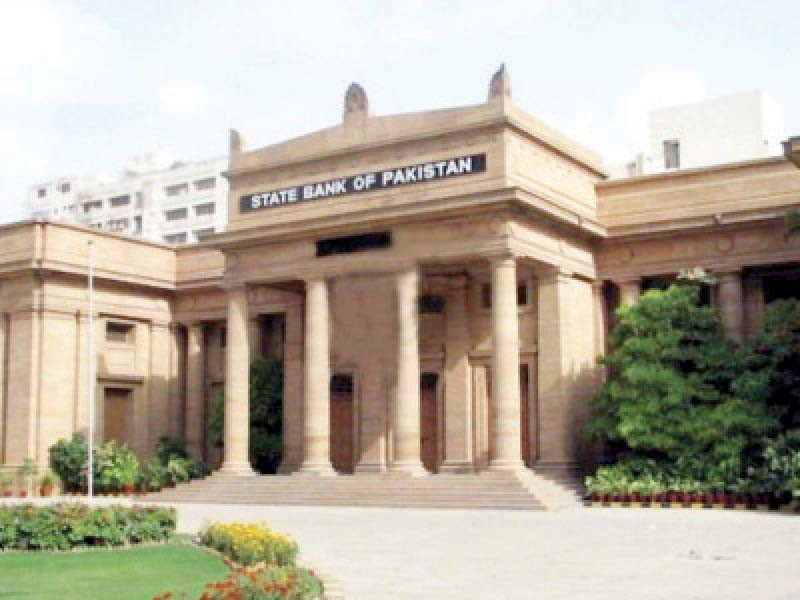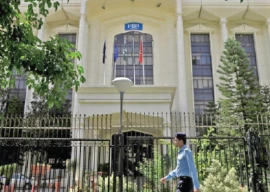
The government has failed to appoint a new governor of the State Bank of Pakistan (SBP) despite interviewing six candidates due to the divisions within its ranks, violating a law that binds it to appoint the governor within one month.
The central bank has been without a permanent governor for the last over two months, particularly at a time when Pakistan’s economy is facing serious challenges and the central bank has the responsibility to control inflation.
The SBP governor is a co-signatory of the Letter of Intent that is a prerequisite for clinching a deal with the International Monetary Fund (IMF).
Of the six people that have been interviewed so far, three have worked with the IMF, including the acting governor, Dr Murtaza Syed, according to the
government sources.
The interviews were conducted by Prime Minister Shehbaz Sharif, who was assisted by Finance Minister Miftah Ismail and Senator Saleem Mandviwalla – a representative of the main coalition partner, the Pakistan Peoples Party (PPP).
But no consensus could be reached during at least four rounds of meetings, according to the sources.
The position of central bank governor fell vacant on May 4 after the Pakistan Muslim League-Nawaz (PML-N) led coalition government decided against giving a second term to Dr Reza Baqir.
The SBP Act of 1956 says any time when the office of Governor is vacant or the Governor is incapacitated, the senior most Deputy Governor shall be the acting governor, until the Governor is appointed.
Section 11 (4) of the law says in the event of a vacancy occurring amongst the appointed governor, deputy governors, non-executive directors and external members of the Monetary Policy Committee, an appointment shall be finalised within a period not exceeding 30 days on the occurrence of
such vacancy.
But it has been over two months and PM Sharif could not agree on a consensus name due to differences within the PML-N ranks and also with the main ally – the PPP, said the sources.
Last month, the government conducted interviews of Asim Meraj Hussain, a former official of the IMF, Dr Murtaza Syed, acting Governor of the SBP, Dr Saeed Ahmad, Senior Adviser to the IMF Executive Director and Zafar Masood, a banker. The decision to call the acting governor for interview had been taken lately and his name was not in the first list, at least two senior officials told The Express Tribune. The name of Zafar Masood had been recommended by the PPP.
Subsequently, the government also called Mohammad Ashraf, Executive Director of the SBP and Jameel Ahmad, former deputy governor of the SBP for interviews on the recommendation of a senior PML-N leader, said the sources.
“There is delay in making a decision but hopefully a summary will be sent to the Prime Minister’s Office next week for the new appointment,” Finance Minister Miftah Ismail told The
Express Tribune.
Sources said that out of the six, the consultation had narrowed down to four names – Asim Meraj, Dr Saeed Ahmad, Dr Murtaza Syed and Jameel Ahmad.
The ruling party was giving more weight to Asim Meraj due to his links in the IMF and Washington.
A senior government official said that it would be appropriate to have a person as the governor who had in the past served at a relatively higher position and also had contacts in the
western capitals.
But another camp in the PML-N was in favour of having a governor who had experience of working both in the IMF and Pakistan. Sources said, therefore, the names of Dr Saeed Ahmad and Dr Murtaza Syed were also being considered.
“No consensus has been achieved so far and the matter is still pending,” said Senator Saleem Mandviwalla. He hoped that the decision would be made in the next round of consultations between the PPP and the PML-N. Mandviwalla said that the PPP was initially of the view that it was better to have a banker rather than an economist as the head of the central bank.
In May, the Ministry of Finance had proposed the names of Noor Ahmad, Pakistan’s Executive Director in the Asian Development Bank, Aurangzeb Khan, President of Habib Bank Limited, and Asim Meraj Hussain for appointment as the central bank governor. Aurangzeb Khan declined to become the governor, according to the sources.
The previous government of Pakistan Tehreek-e-Insaf (PTI) had amended the SBP law under pressure from the IMF and the SBP, and extended the standard term for the governor from three years to five years, with the option of reappointment for another five years.
Under the new law, containing inflation to the level set by the federal government is also the responsibility of the central bank.
But Murtaza Syed said on Thursday that the annualised inflation rate may remain in the range of 18% to 20% in the current fiscal year – far higher than the 11.5% target set by
the government.
Published in The Express Tribune, July 8th, 2022.
Like Business on Facebook, follow @TribuneBiz on Twitter to stay informed and join in the conversation.


1731573461-0/BeFunky-collage-(57)1731573461-0-165x106.webp)
1722585575-0/BeFunky-collage-(22)1722585575-0-165x106.webp)
1731572852-0/emily-(2)1731572852-0-165x106.webp)













COMMENTS (2)
Comments are moderated and generally will be posted if they are on-topic and not abusive.
For more information, please see our Comments FAQ